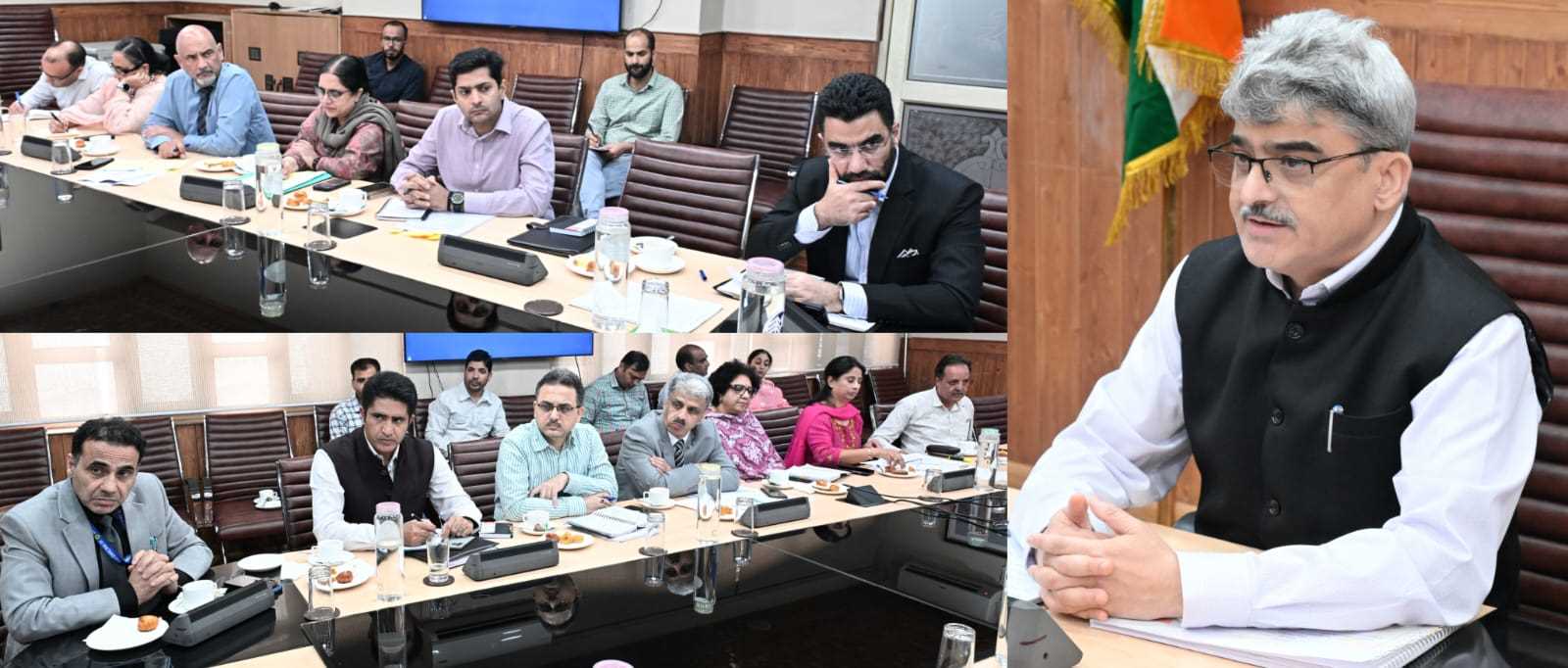
Chief Secretary Atal Dulloo held a high-level discussion with NITI Aayog Member Dr. V.K. Paul to advance the establishment of Tele-ICU facilities in newly established Government Medical Colleges (GMCs) across Jammu and Kashmir.
Dr. Paul shared insights into successful Tele-ICU models being implemented nationwide by healthcare leaders such as Apollo Tele Health, Medanta, Cloudphysician, and Health Net. He emphasized the need to assess the individual capacities and infrastructure of hospitals before launching the initiative, stressing the importance of staff training and capacity building.
The Chief Secretary reaffirmed the UT administration’s commitment to adopting innovative healthcare solutions, stating that J&K plans to implement the Tele-ICU model under a "hub-and-spoke" system. Under this framework, the new GMCs will act as spokes connected to a centralized hub and command centre, ensuring 24x7 critical care support and specialist consultations.
To ensure a smooth rollout, the Chief Secretary proposed sending an expert team to study functional Tele-ICU systems in leading institutions across India. He also stressed the need to build a state-of-the-art command centre in J&K, supported by skilled resource persons and technology partners, with the potential to expand to additional hubs across the UT.
Dr. Syed Abid Rashid Shah, Secretary of the Health & Medical Education Department, shared that each new GMC is proposed to have a 10-bedded Tele-ICU. He also presented the department’s preparatory work and future roadmap.
Director SKIMS, Prof. Mohammad Ashraf Ganie, and principals of various GMCs contributed insights based on their institutional experiences and discussed strategic considerations for effective implementation.
The meeting marks a significant move towards integrating advanced telemedicine in J&K’s healthcare delivery, aimed at strengthening critical care services, especially in remote and underserved regions.
Chief Secretary Atal Dulloo held a high-level discussion with NITI Aayog Member Dr. V.K. Paul to advance the establishment of Tele-ICU facilities in newly established Government Medical Colleges (GMCs) across Jammu and Kashmir.
Dr. Paul shared insights into successful Tele-ICU models being implemented nationwide by healthcare leaders such as Apollo Tele Health, Medanta, Cloudphysician, and Health Net. He emphasized the need to assess the individual capacities and infrastructure of hospitals before launching the initiative, stressing the importance of staff training and capacity building.
The Chief Secretary reaffirmed the UT administration’s commitment to adopting innovative healthcare solutions, stating that J&K plans to implement the Tele-ICU model under a "hub-and-spoke" system. Under this framework, the new GMCs will act as spokes connected to a centralized hub and command centre, ensuring 24x7 critical care support and specialist consultations.
To ensure a smooth rollout, the Chief Secretary proposed sending an expert team to study functional Tele-ICU systems in leading institutions across India. He also stressed the need to build a state-of-the-art command centre in J&K, supported by skilled resource persons and technology partners, with the potential to expand to additional hubs across the UT.
Dr. Syed Abid Rashid Shah, Secretary of the Health & Medical Education Department, shared that each new GMC is proposed to have a 10-bedded Tele-ICU. He also presented the department’s preparatory work and future roadmap.
Director SKIMS, Prof. Mohammad Ashraf Ganie, and principals of various GMCs contributed insights based on their institutional experiences and discussed strategic considerations for effective implementation.
The meeting marks a significant move towards integrating advanced telemedicine in J&K’s healthcare delivery, aimed at strengthening critical care services, especially in remote and underserved regions.
© Copyright 2023 brighterkashmir.com All Rights Reserved. Quantum Technologies